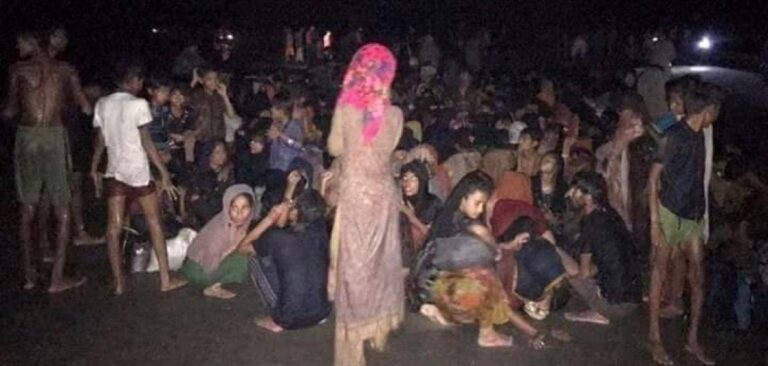by NATALIE BRINHAM, et al

Institute on Statelessness and Inclusion and UN Special Rapporteur on Contemporary Forms of Racism, Racial Discrimination, Xenophobia and Related Intolerance
Briefing Paper – November 2020
Introduction and Methodology
Rohingya communities have been arbitrarily deprived of their nationality and persecuted in Myanmar, while also being denied adequate protection as refugees and stateless persons in neighbouring countries. At the centre of their insecurities and vulnerabilities, is a lack of legal status as citizens in Myanmar, and as residents, refugees and stateless persons elsewhere. For over 30 years, Rohingya in Myanmar have been subject to one of the world’s most oppressive registration and surveillance systems, the ultimate aim of which has been to exclude and persecute. In other countries, they have been left out of civil documentation procedures in order to deny them a legal status and thus avoid state responsibility. In more recent times, national personal identification systems are increasingly moving from the paper-based to digital; bringing opportunities to protect, but also potential to entrench exclusion, denial and persecution.
This Briefing Paper contextualises Rohingya human rights and protection concerns within the global trajectory towards legal identities for all and the increased digitisation of identification systems. The paper relates Rohingya experiences of registration systems to wider human rights challenges around racial and xenophobic discrimination,1 digital technologies and borders, as articulated in a recent report by the UN Special Rapporteur on Contemporary Forms of Racism, Racial Discrimination, Xenophobia and Related Intolerance (hereinafter referred to as the ‘Special Rapporteur on Racism’):
“Governments and non-state actors are developing and deploying emerging digital technologies in ways that are uniquely experimental, dangerous, and discriminatory in the border and immigration enforcement context. By so doing, they are subjecting refugees, migrants, stateless persons and others to human rights violations, and extracting large quantities of data from them on exploitative terms that strip these groups of fundamental human agency and dignity.”
— Tendayi Achiume, the UN Special Rapporteur on Contemporary Forms of Racism, Racial Discrimination, Xenophobia and Related Intolerance
The central message of this paper is the urgent imperative to learn from the past and from other contexts, before it is too late. The lessons flowing from previous failures of the international community to protect the Rohingya, and the warning signs emerging from premature attempts to roll out digital ID elsewhere, without first ensuring that the right law and policy framework is in place, must be listened to. The political, economic, institutional and pragmatic reasons to downplay or dismiss such warnings can be immense, but the cost of doing so is likely to be greater still. The Rohingya have endured unthinkable atrocities over many decades, and the world owes it to them to at least now, put a premium on their safety, security, dignity and equality.
Transcend for more
